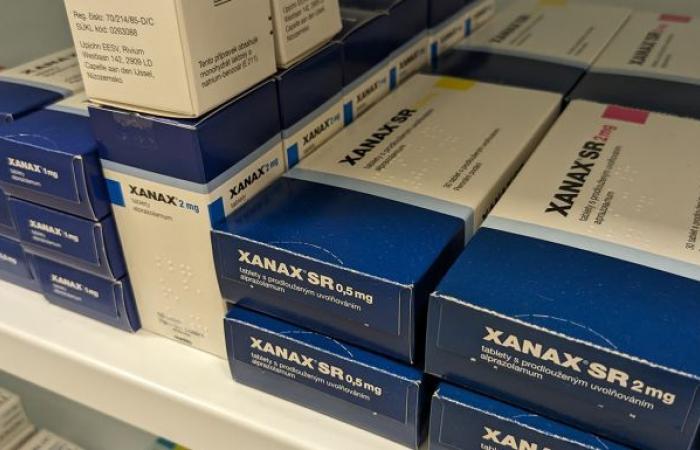Since 2019, Lebanon has been plunged into a series of devastating socio-economic and political crises, with war crowning it all. The accumulation of these events has generated a climate of generalized anxiety among the population, raising the issue of mental health management in the country. How do the inhabitants of the Cedar country face these challenges?
The current crisis has left deep scars on the mental health of the Lebanese. Anxiety, in particular, has spread exponentially, reflecting pervasive feelings of fear and uncertainty. Although many Lebanese people resort to different methods to reduce stress, such as meditation, sports or alternative medicine, more and more people are turning to quick solutions to ease their fears. Among these solutions, benzodiazepines (anxiolytics) have gained popularity.
How do the Lebanese use these medications? Do they use these sedatives under medical supervision or as self-medication? Although antianxiety medications can provide mental relief, are they used appropriately or are they a risky response to underlying problems?
Managing anxiety
Mira*, in her forties, shares her poignant testimony about the use of anxiolytics in her daily life. “I started taking Xanax a few years ago because of my panic attacks. I consulted a psychiatrist who prescribed this medication to treat my anxiety, because antidepressants take time to work,” she tells Ici Beirut.
Before the start of the conflict between Hezbollah and Israel, Mira had managed to reduce her consumption of this drug. “But since September 23, with the intensification of the war in Lebanon, the noise of drones and nighttime bombings has become very stressful for me,” she confides.
Growing demand in the face of current tensions
Like Mira, many patients consult mental health professionals. Dr. Sami Richa, psychiatrist and corresponding member of the French National Academy of Medicine, emphasizes to Ici Beirut that “there is a strong demand for benzodiazepines. Some people ask for these medications to relieve their anxiety.”
“Currently, many patients complain of sleep problems and present somatic symptoms,” adds Dr. Richa. Adults and older people commonly use benzodiazepines, but there is a growing demand among young people, particularly for sleep, due to anxiety caused by drone noise.”
Despite the effectiveness of benzodiazepines in relieving acute symptoms of anxiety, it is crucial to emphasize the importance of rigorous medical monitoring to monitor side effects and avoid dependence.
“I remain under medical supervision with my psychiatrist, who is always attentive. I explain to him in detail the symptoms I suffer from during these difficult times and I inform him of any changes,” confides Mira.
The alternatives
There are several alternatives to stop or reduce the consumption of anxiolytics. Mira shares with Ici Beirut some strategies that have worked well for her. “When I stopped the medication I was taking, I found that walking and exercise were very effective in helping me to exercise and not focus on my anxiety. I encourage anyone in a similar situation not to hesitate to consult a specialist, whether a psychiatrist or a psychotherapist. For me, the anxiolytic is a crutch that has helped me get through difficult times.”
Dr. Richa shares a similar opinion in this regard. There are natural alternatives to improve sleep, such as melatonin or a glass of anise before bed. The psychiatrist insists that “anxiety symptoms do not always require treatment with benzodiazepines, except in cases of very strong and persistent symptoms”. According to him, there are levels of anxiety that do not require immediate treatment. For example, “if one experiences difficulty sleeping in an area affected by bombing, it is best to leave that area, as medication does not solve the source of the problem; anxiety usually returns after the drug has been eliminated from the body”.
Supply challenges and requirements
Medicine shortages and supply difficulties caused by the economic crisis and logistical disruptions pose major challenges for those who rely on these medications to manage their anxiety.
Their non-availability in pharmacies has pushed patients to opt for generics, as is the case for Mira. “Since the 2019 crisis in Lebanon, it has been difficult to get my medicine, but I found a generic medicine, like alprazolam, which also helps.”
Dr. Joe Salloum, president of the pharmacists’ union in Lebanon, emphasizes to Ici Beirut that many individuals request these medications without a proper prescription issued by a doctor. However, pharmacists “refuse to provide them without a prescription, due to the serious side effects and risk of dependence associated with these substances”, which include drowsiness, dizziness, memory problems and risk of dependence.
Due to the significant shortage of these drugs, whose stocks are often limited, “patients can only receive one box per month, even with a prescription valid for six months”, specifies Dr. Salloum, who also highlights the existence of drug smuggling, which can aggravate the illegal sale of these substances.
In Lebanon, the law states that any doctor has the right to prescribe any kind of medication, but it is important to note that certain medications must be prescribed by a qualified psychiatrist or neurologist. Dr Richa emphasizes the importance of thinking about the long-term consequences of taking these medications, because the ease of prescribing should not mislead about the need for reasoned use.
*The first name used in this article is not that of the person, who asked to remain anonymous.






